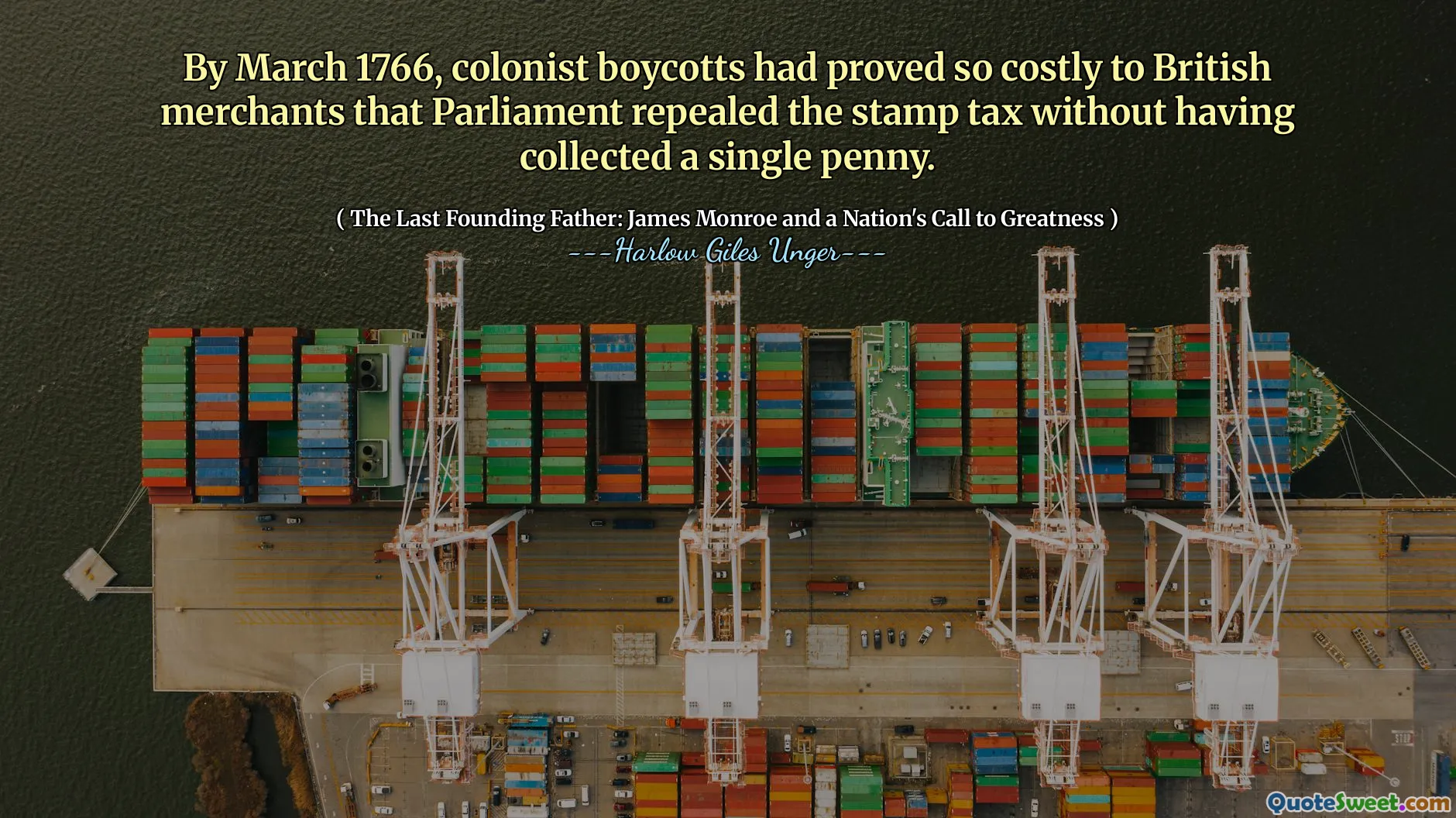
By March 1766, colonist boycotts had proved so costly to British merchants that Parliament repealed the stamp tax without having collected a single penny.
In March 1766, the economic impact of colonist boycotts became significant enough to concern British merchants. The boycotts, which aimed to protest British taxation policies, resulted in substantial financial losses for these merchants. As a result of this pressure, the British Parliament decided to repeal the controversial stamp tax.
This repeal occurred without the British government having collected any revenue from the tax, illustrating the effectiveness of the colonists’ resistance and organizing efforts. Harlow Giles Unger's book, "The Last Founding Father: James Monroe and a Nation's Call to Greatness," highlights this turning point in the struggle between the American colonies and Britain, emphasizing the growing resistance among colonists against perceived injustices.











